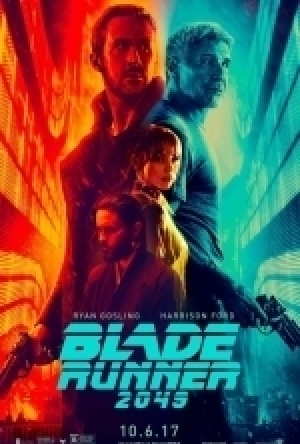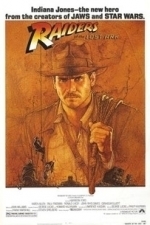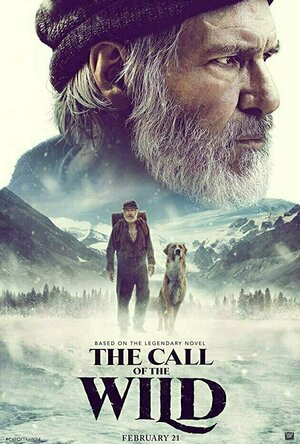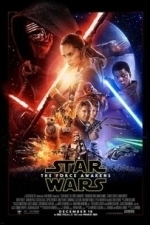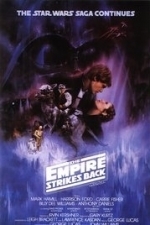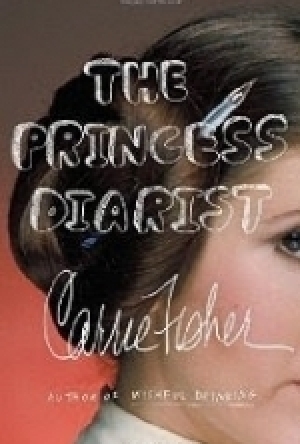Search
Sarah (7800 KP) rated Blade Runner 2049 (2017) in Movies
Oct 16, 2017
Visually impressive
Trying to follow the original Blade Runner is a difficult task, but Denis Villeneuve has done a fantastic job. This is one of the most visually impressive films I've seen all year, and it has the music and score to match. It's not an all out sci-fi as expected, but more a slow burning detective story.
Ryan Gosling is surprisingly good in the lead role, I've never been much of a fan of his until now but he does well. Harrison Ford is perhaps a little underused, and I wasnt a huge fan of Jared Leto and his character.
My only criticism would be it felt a little too long. I'm sure they could've cut a few of the scenes down to a slightly more acceptable length to avoid the nearly 3 hour runtime.
Ryan Gosling is surprisingly good in the lead role, I've never been much of a fan of his until now but he does well. Harrison Ford is perhaps a little underused, and I wasnt a huge fan of Jared Leto and his character.
My only criticism would be it felt a little too long. I'm sure they could've cut a few of the scenes down to a slightly more acceptable length to avoid the nearly 3 hour runtime.
Harrison Boyer (6 KP) rated Raiders of the Lost Ark (1981) in Movies
Jun 1, 2020
Action Serials in the 1980s? Yes Please
Released in the summer of 1981 and the idea of George Lucas after American Graffiti and the film he'd pursue with Steven Spielberg after the hit known as Star Wars, Raiders of the Lost Ark is a film that plays upon the cliches and tricks of the classic action serials of the 40s and 50s that both men grew up on. Starring Harrison Ford, Karen Allen, John Rhys Davies, Paul Freeman and became the highest grossing film of 1981. Lucas and Spielberg also wanted this to be shit quick and really dirty like the action serials of the past. What we get is an adventure that has not only been regarded as one of the best action films ever made, but for some, one of the greatest movies ever made. And it truly is a tour de force. Visuals amazing. Acting is great
Matthew Krueger (10051 KP) rated The Call Of The Wild (2020) in Movies
Jun 3, 2020
We Named The Dog Indiana
The Call of The Wild- The movie has intresting CGI, which mean all of animals and the adventure is CGI and you can tell. Some of CGI is good, the other CGI is bad. But it is Harrison Ford with a dog so thats cool. Just wish the dog was named Indiana. Would of made this movie better, but Buck is cool.
The plot: Buck is a big-hearted dog whose blissful domestic life gets turned upside down when he is suddenly uprooted from his California home and transplanted to the exotic wilds of the Alaskan Yukon in the 1890s. As the newest rookie on a mail-delivery dog sled team, Buck experiences the adventure of a lifetime as he ultimately finds his true place in the world.
A unique adventure about a dog adventure and journey. Its fun, entertaining and overall a good adventure.
The plot: Buck is a big-hearted dog whose blissful domestic life gets turned upside down when he is suddenly uprooted from his California home and transplanted to the exotic wilds of the Alaskan Yukon in the 1890s. As the newest rookie on a mail-delivery dog sled team, Buck experiences the adventure of a lifetime as he ultimately finds his true place in the world.
A unique adventure about a dog adventure and journey. Its fun, entertaining and overall a good adventure.
Lenard (726 KP) rated The Call Of The Wild (2020) in Movies
Feb 24, 2020
It Wears Its Heart in the Right Place
I love Jack London's writing. It is so nice to read a story with language that is so straightforward. Caught between the romantic period, when writers used flowery prose and were paid per word, and the stream-of-consciousness movement, where narrators spoke in a manner of events as they were happening right at that moment, London's naturalism was a change of pace for readers.
Buck is the housebroken dog of a San Francisco judge who was indulged as any child of wealth would be in the 1890s. Alaska was harsh environment for man and beast. When money was offered for dogs who could work in Alaska as sled dogs for supplies to mining outposts, Buck is kidnapped. Along the way, Buck begins to learn the lineage of his forebears, the wolves, as he adapts to his new life in the frozen tundra.
The movie itself as adapted in 2020 avoids a lot of the hardships that Buck faces in his new life, but he is given a kindly old sage who looks out for him throughout the movie. It also includes a Snidely Whiplash-like literal gold-digger who comes to Alaska with little knowledge of Alaska or gold prospecting. This character is two-dimensional and portrayed as "evil." Also, the character of Spitz, an Alaskan malamute who leads the sled team and serves as an antagonist for Buck, is given very little screentime.
Last observation, during the film, as Harrison Ford lay on the ground in one of the final scenes, I looked into his eyes and saw not the 77-year-old Harrison Ford who has become a mentor to the film community, but the 30-year-old carpenter who just wanted to drag race a teenager in American Graffiti. He still has within his eyes, the look of hunger that acting feeds. And, he didn't need de-aging SPX to look younger than he is.
Buck is the housebroken dog of a San Francisco judge who was indulged as any child of wealth would be in the 1890s. Alaska was harsh environment for man and beast. When money was offered for dogs who could work in Alaska as sled dogs for supplies to mining outposts, Buck is kidnapped. Along the way, Buck begins to learn the lineage of his forebears, the wolves, as he adapts to his new life in the frozen tundra.
The movie itself as adapted in 2020 avoids a lot of the hardships that Buck faces in his new life, but he is given a kindly old sage who looks out for him throughout the movie. It also includes a Snidely Whiplash-like literal gold-digger who comes to Alaska with little knowledge of Alaska or gold prospecting. This character is two-dimensional and portrayed as "evil." Also, the character of Spitz, an Alaskan malamute who leads the sled team and serves as an antagonist for Buck, is given very little screentime.
Last observation, during the film, as Harrison Ford lay on the ground in one of the final scenes, I looked into his eyes and saw not the 77-year-old Harrison Ford who has become a mentor to the film community, but the 30-year-old carpenter who just wanted to drag race a teenager in American Graffiti. He still has within his eyes, the look of hunger that acting feeds. And, he didn't need de-aging SPX to look younger than he is.
David McK (3676 KP) rated Star Wars: Episode VII - The Force Awakens (2015) in Movies
Feb 17, 2019 (Updated Mar 29, 2020)
BB-8 (2 more)
Harrison Ford
Return to practical effects instead of an over excess of cgi
It's no coincidence that one of the earliest lines in the film is 'this will make everything right'.
The first Post-Disney acquisition film in the Star Wars saga, this one had a lot of expectation on its shoulders: it had to appease those who felt 'sold out' by the prequels (i.e. largely those who grew up with the originals) while also had to appeal to a whole new generation. In other words, it had quite a tightrope to walk.
A tightrope which, by and large, it does so successfully.
It's not perfect: JJ Abrams sets up a lot of questions which Rian Johnson would later deem irrelevant (in The Last Jedi), while elements of the plot are, shall we say, more than a little familiar, but by and large...
The first Post-Disney acquisition film in the Star Wars saga, this one had a lot of expectation on its shoulders: it had to appease those who felt 'sold out' by the prequels (i.e. largely those who grew up with the originals) while also had to appeal to a whole new generation. In other words, it had quite a tightrope to walk.
A tightrope which, by and large, it does so successfully.
It's not perfect: JJ Abrams sets up a lot of questions which Rian Johnson would later deem irrelevant (in The Last Jedi), while elements of the plot are, shall we say, more than a little familiar, but by and large...
Michelle (114 KP) rated Star Wars: Episode V – The Empire Strikes Back (1980) in Movies
Mar 16, 2018
Loved this film even though all three of the original films were filmed and seen before the first part of the Star Wars series. Mark Hamell, Harrison Ford, The late Carrie Fisher were the best as Luke Skywalker, Han Solo and Princess Lai she soon should everyone that she was not some helpless princess who let everyone else do things while she sat back and did nothing. Her costumes were amazing, she was right in there fighting along with them to save their homelands/worlds from the Dark Lord Darth Vada. The ariel battles were fantastic. Storm Troopers were meant to be menacing when in fact they were quite funny at times. R2 D2 and 3PO where hilarious and Chewie adorable. The Jedi training was good. The shock about Luke's father I mean who would not be shocked and disgusted at finding out your father is Darth Vada and the girl you love turns out to be your sister.
David McK (3676 KP) rated Raiders of the Lost Ark (1981) in Movies
Dec 31, 2019 (Updated Apr 28, 2020)
The first Indiana Jones film, with Harrison Ford in the role for which he would become iconic.
It's fair to say that this has permeated popular culture: the bullwhip, the hat, the fear of snakes are all intrinsic to the character and heavily copied over the years (Tomb Raider, anyone? The Uncharted series?), with even TVs The Simpsons doing a parody of the opening tomb robbing scene with Homer chasing Bart and ending up rolling down the stairs.
There's almost too many iconic scenes (and quotes) to count: that tomb robber bit at the start, the fed-up Indy shooting the sword-wielder in Cairo (initially storyboarded as a full on sword fight, except the actors all got sick), the Well of Souls sequence, the escape, "It's not the years, honey, it's the mileage", the opening of the Ark by the Nazis and the final warehouse scene, to name but a few!
It's fair to say that this has permeated popular culture: the bullwhip, the hat, the fear of snakes are all intrinsic to the character and heavily copied over the years (Tomb Raider, anyone? The Uncharted series?), with even TVs The Simpsons doing a parody of the opening tomb robbing scene with Homer chasing Bart and ending up rolling down the stairs.
There's almost too many iconic scenes (and quotes) to count: that tomb robber bit at the start, the fed-up Indy shooting the sword-wielder in Cairo (initially storyboarded as a full on sword fight, except the actors all got sick), the Well of Souls sequence, the escape, "It's not the years, honey, it's the mileage", the opening of the Ark by the Nazis and the final warehouse scene, to name but a few!
Eduardo Sanchez recommended Raiders of the Lost Ark (1981) in Movies (curated)
Rico Rodriguez recommended Star Wars: Episode V – The Empire Strikes Back (1980) in Movies (curated)
Kristy H (1252 KP) rated The Princess Diarist in Books
Feb 8, 2018
Carrie Fisher's latest memoir details a behind the scenes look of the first <i>Star Wars</i> film. Motivated by the recent discovery of the journals she wrote while filming <i>Star Wars</i> in the late 1970s, Fisher discusses her naive nineteen-year-old self: not yet famous (though with famous parents) and unprepared for the juggernaut that would become the <i>Star Wars</i> franchise. She also covers her now famous co-star, Harrison Ford, and their relationship during the three months of filming. Fisher presents excerpts from her discovered journals and ponders on her life and the fame and notoriety that playing Princess Leia has brought her.
I am new to the <i>Star Wars</i> fandom, having only recently discovered the films myself in the past two years or so. My four-year-old daughters love them (and Leia), so I was intrigued by the idea of Fisher's memoir. While I like the films, I don't consider myself a fanatic by any stretch of the imagination. Still, I was interested in hearing some behind the scenes tidbits about filming. And Fisher starts out with such facts, explaining how an early scene was re-written due to the physical limitations of Peter Mayhew, who played Chewbacca. It's that sort of information that I find fascinating--and imagine other <i>Star Wars</i> fans would as well.
And, I won't lie, I was also fascinated by Fisher's reported relationship with Harrison Ford, who is about 15 years her senior (and was married while they were filming). Her portrayal of Harrison in the book seems spot on and is actually quite humorous at times. Unfortunately, her actual detail of the relationship is scant at best, and we really don't get much insight into their romance. What we do get is a lot of particulars about Fisher's own insecurities about herself, her body, her acting, etc.
She includes actual excerpts of the journals she found in the middle of the book, and I confess, I eventually started skimming them, because they were just agony to read. I can understand how they resonate from the perspective of a lovestruck teenager (because, truly, she was just that at the time), but so many years later, they just seem like a lot of bad poetry and ramblings that make no sense out of context. And beyond a few stories about Harrison, we really get nothing in the book that explains them, which is unfortunate, as Fisher seems witty and interesting (albeit insecure, but hey, so am I). I understand her angst from the journals, I really do, but I'm not honestly sure I wanted to read it in such form.
Plus, after that section of the book, we move on to Fisher discussing her fans and how "being Leia" has affected her life. And, again, I get it: we all forget how no one expected <i>Star Wars</i> to be so big. You wouldn't at nineteen realize what you were getting into, and I'm sure this character has absorbed much of her identity. And maybe it was reading this on the heel of Anna Kendrick's memoir, but I can only take so much of celebrities complaining about their fame and lives. The second half of Fisher's book, basically, is her capturing "conversations" with awestruck fans explaining how much Leia and <i>Star Wars</i> meant to them. But, really, it's mocking them and illustrating how tiresome the "lap dance" (her words) of signing autographs and appearing at various conventions can be. But, you know, as she states, it's worth it for the money. You can't help but feel a little offended on the part of these devoted, crazy fans, and a little less sorry for Fisher, even if she was not included on merchandising shares for <i>Star Wars</i>.
Sigh. Overall, I'm a bit conflicted on this one. Bits and pieces were very interesting. But I would have enjoyed hearing more about the actual set and her interactions with the other actors beyond Harrison Ford. While I also didn't mind hearing about Fisher's impressions of how Leia impacted her life, the fandom sections just rubbed me the wrong way. 2.5 stars.
I am new to the <i>Star Wars</i> fandom, having only recently discovered the films myself in the past two years or so. My four-year-old daughters love them (and Leia), so I was intrigued by the idea of Fisher's memoir. While I like the films, I don't consider myself a fanatic by any stretch of the imagination. Still, I was interested in hearing some behind the scenes tidbits about filming. And Fisher starts out with such facts, explaining how an early scene was re-written due to the physical limitations of Peter Mayhew, who played Chewbacca. It's that sort of information that I find fascinating--and imagine other <i>Star Wars</i> fans would as well.
And, I won't lie, I was also fascinated by Fisher's reported relationship with Harrison Ford, who is about 15 years her senior (and was married while they were filming). Her portrayal of Harrison in the book seems spot on and is actually quite humorous at times. Unfortunately, her actual detail of the relationship is scant at best, and we really don't get much insight into their romance. What we do get is a lot of particulars about Fisher's own insecurities about herself, her body, her acting, etc.
She includes actual excerpts of the journals she found in the middle of the book, and I confess, I eventually started skimming them, because they were just agony to read. I can understand how they resonate from the perspective of a lovestruck teenager (because, truly, she was just that at the time), but so many years later, they just seem like a lot of bad poetry and ramblings that make no sense out of context. And beyond a few stories about Harrison, we really get nothing in the book that explains them, which is unfortunate, as Fisher seems witty and interesting (albeit insecure, but hey, so am I). I understand her angst from the journals, I really do, but I'm not honestly sure I wanted to read it in such form.
Plus, after that section of the book, we move on to Fisher discussing her fans and how "being Leia" has affected her life. And, again, I get it: we all forget how no one expected <i>Star Wars</i> to be so big. You wouldn't at nineteen realize what you were getting into, and I'm sure this character has absorbed much of her identity. And maybe it was reading this on the heel of Anna Kendrick's memoir, but I can only take so much of celebrities complaining about their fame and lives. The second half of Fisher's book, basically, is her capturing "conversations" with awestruck fans explaining how much Leia and <i>Star Wars</i> meant to them. But, really, it's mocking them and illustrating how tiresome the "lap dance" (her words) of signing autographs and appearing at various conventions can be. But, you know, as she states, it's worth it for the money. You can't help but feel a little offended on the part of these devoted, crazy fans, and a little less sorry for Fisher, even if she was not included on merchandising shares for <i>Star Wars</i>.
Sigh. Overall, I'm a bit conflicted on this one. Bits and pieces were very interesting. But I would have enjoyed hearing more about the actual set and her interactions with the other actors beyond Harrison Ford. While I also didn't mind hearing about Fisher's impressions of how Leia impacted her life, the fandom sections just rubbed me the wrong way. 2.5 stars.
